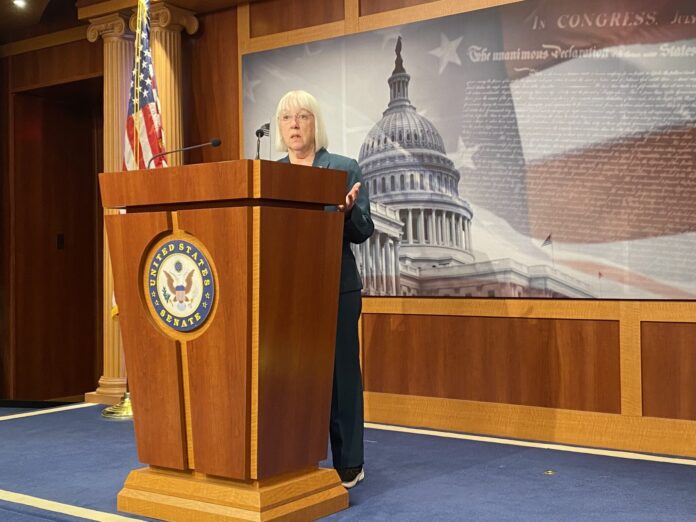
WASHINGTON (States Newsroom) — The top Republican and top Democrat on the U.S. Senate Appropriations Committee sent the Trump administration a joint letter on Thursday, telling the Office of Management and Budget it’s on thin ice with the panel.
The dispute has to do with how the White House is implementing the stopgap spending law that Congress approved earlier this month, which funds the federal government through the end of the fiscal year on Sept. 30.
Chairwoman Susan Collins, R-Maine, and ranking member Patty Murray, D-Wash, wrote in the two-page letter that the way OMB is approaching a section on emergency designations is in sharp contrast to how other administrations have implemented it.
“This (or substantially similar) language has been used in appropriations legislation for decades, and it has always been interpreted to give the President a binary choice: He must concur with all or none of Congress’s emergency designations,” Collins and Murray wrote. “Just as the President does not have a line-item veto, he does not have the ability to pick and choose which emergency spending to designate.
“This interpretation is consistent with congressional intent and is the most logical and consistent reading of the law.”
The two wrote the Trump administration’s new “piecemeal approach” raises questions about whether emergency funding, including $8 billion in housing assistance, will be available as Congress intended.
Collins and Murray appeared to imply that OMB not correcting course on the emergency designation would strain the working relationship between the Appropriations Committee and the Trump administration.
The two will need to work together in the months ahead to draft the dozen appropriations bills for fiscal year 2026, which is slated to begin Oct. 1.
“We are concerned that sudden changes to OMB’s interpretation of long-standing statutory provisions could be disruptive to the appropriations process and make it more difficult for the Appropriations Committee to work in a collaborative fashion with the Administration to advance priorities on behalf of the American people,” they wrote. “Collaboration will become even more challenging when the Committee is first informed of such developments through the press, rather than notified through official channels, as was the case here.”






